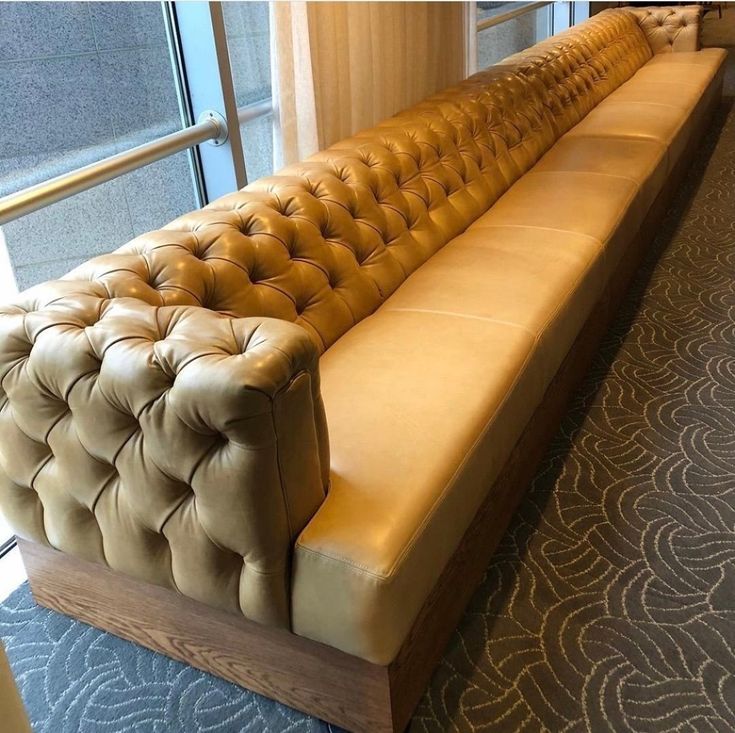The Ultimate Guide to Cafeteria Sofas: Design, Comfort, and Choosing the Right One for Your Space
When designing a communal dining or lounge area, cafeteria sofas are an essential piece of furniture that offers both style and functionality. Whether you're outfitting a busy school cafeteria, a corporate office break room, or a public food court, choosing the right cafeteria sofa can make a significant difference in both comfort and the overall aesthetic of the space. In this guide, we'll walk you through everything you need to know about cafeteria sofas—from their design benefits to how to select the perfect one for your unique space.

1. What Exactly is a Cafeteria Sofa?
A cafeteria sofa is a type of upholstered seating designed specifically for public dining or social spaces. Unlike traditional chairs or booths, cafeteria sofas are built for comfort and durability, with the capacity to accommodate several people at once. These sofas are ideal for high-traffic environments like schools, offices, and food courts, where seating needs to be practical yet inviting. They come in various configurations—from modular designs that allow flexibility in seating arrangement to more traditional long rows of seats designed for quick, efficient seating.
2. The Key Benefits of Cafeteria Sofas
Enhanced Comfort and Relaxation
The primary appeal of cafeteria sofas lies in their comfort. Designed with padded cushions and soft upholstery, these sofas are perfect for spaces where people linger to eat, chat, or relax. Cafeteria sofas provide more comfort compared to hard, traditional seating, making them ideal for environments where individuals may stay for extended periods.
Space-Saving Flexibility
Cafeteria sofas are also excellent for optimizing space. Unlike traditional seating arrangements that might require multiple chairs and tables, a single sofa unit can accommodate several people while occupying less floor area. Modular sofas are particularly flexible, as they can be rearranged to fit a variety of space layouts.
Durable and Easy to Maintain
Durability is a key factor in choosing cafeteria sofas, as they are typically exposed to heavy use. Most cafeteria sofas are constructed from high-quality materials, including stain-resistant fabrics, durable frames, and long-lasting cushions. This makes them a smart long-term investment, as they are easy to clean and can withstand constant use.
Aesthetic Appeal
Cafeteria sofas not only serve practical purposes, but they also contribute to the overall design of the space. With a range of styles, colors, and materials available, cafeteria sofas can seamlessly blend into any environment. Whether you’re going for a sleek, modern look or a more relaxed, casual vibe, there’s a cafeteria sofa design that will complement your space.
3. Popular Types of Cafeteria Sofas
Modular Sofas
Modular cafeteria sofas are perfect for flexible spaces. These sofas consist of individual pieces that can be easily rearranged to fit different layouts. Whether you're designing a cozy corner or a large, open-plan area, modular sofas allow you to create seating arrangements that suit your needs. Their versatility makes them an excellent choice for evolving spaces, such as offices and educational institutions.
Booth-Style Sofas
For a more private, intimate dining experience, booth-style cafeteria sofas are a great option. These units are typically designed with high backs and side panels, providing a sense of privacy and seclusion for diners. They are commonly seen in food courts or large cafeteria settings and offer a cozy environment for people to eat and converse without distractions.
Lounge Sofas
Lounge-style cafeteria sofas are perfect for relaxed, informal environments. These sofas feature deep seats, plush cushions, and a more relaxed design, creating an inviting atmosphere. They’re typically used in spaces where people aren’t just eating but also socializing or taking a break, such as in lounge areas or common rooms.
4. How to Choose the Right Cafeteria Sofa for Your Space
Assess the Space Layout
When selecting a cafeteria sofa, it’s important to consider the size and layout of your space. If you have a smaller area, modular sofas are a great choice, as they can be arranged in different ways to fit the available space. Larger areas may benefit from more traditional seating arrangements or booth-style sofas, which create a sense of order and structure in bigger dining spaces.
Durability and Material Considerations
Because cafeterias and public dining areas experience heavy foot traffic, durability should be a top priority. Look for sofas made from high-performance fabrics that are both easy to clean and resistant to stains. Leather and vinyl are great choices for high-traffic areas due to their easy maintenance and longevity. Additionally, consider the frame of the sofa—steel or reinforced wood frames are generally more durable and provide better support.
Comfort and Ergonomics
Comfort is paramount for cafeteria sofas, as they’re meant to offer a place for people to sit for long periods. Pay attention to the depth and height of the seat cushions to ensure that the sofa will accommodate a range of body types comfortably. Ergonomically designed sofas with lumbar support are also a good choice, especially in spaces where employees or students will spend a lot of time.
Aesthetic and Style
The style of the cafeteria sofa should complement the overall décor of the space. Whether you’re creating a contemporary office lounge or a warm, inviting cafeteria, choose a design that enhances the ambiance. Opt for neutral tones for a modern, minimalist look or go bold with vibrant colors to create a more lively atmosphere. The upholstery material (e.g., fabric, faux leather, or vinyl) will also impact the look and feel of the space, so choose one that aligns with your vision.
5. Trending Cafeteria Sofa Designs for 2024
The furniture market is constantly evolving, and cafeteria sofas are no exception. Here are some of the latest trends for 2024:
Sustainable Furniture: Eco-friendly materials are gaining popularity. Many manufacturers now offer cafeteria sofas made from recycled fabrics, sustainable woods, or biodegradable materials, catering to the growing demand for green solutions in commercial spaces.
Customizable Modular Designs: Modular sofas continue to be a top trend, with more customizable options available. Businesses are increasingly opting for these versatile designs that can be easily reconfigured to meet specific needs and preferences.
Bold and Bright Colors: 2024 sees a rise in vibrant colors and patterns in cafeteria furniture. From bold accent hues to playful geometric patterns, these designs can add personality and energy to your space, making it feel more dynamic and welcoming.
Selecting the right cafeteria sofa is an important decision that will impact both the comfort and aesthetics of your space. Whether you’re outfitting a corporate office, a school cafeteria, or a public lounge, understanding the types of sofas available, their benefits, and how to choose the right one will ensure you make an informed choice. By considering factors such as comfort, durability, style, and space optimization, you can create a welcoming and functional environment for everyone to enjoy.

